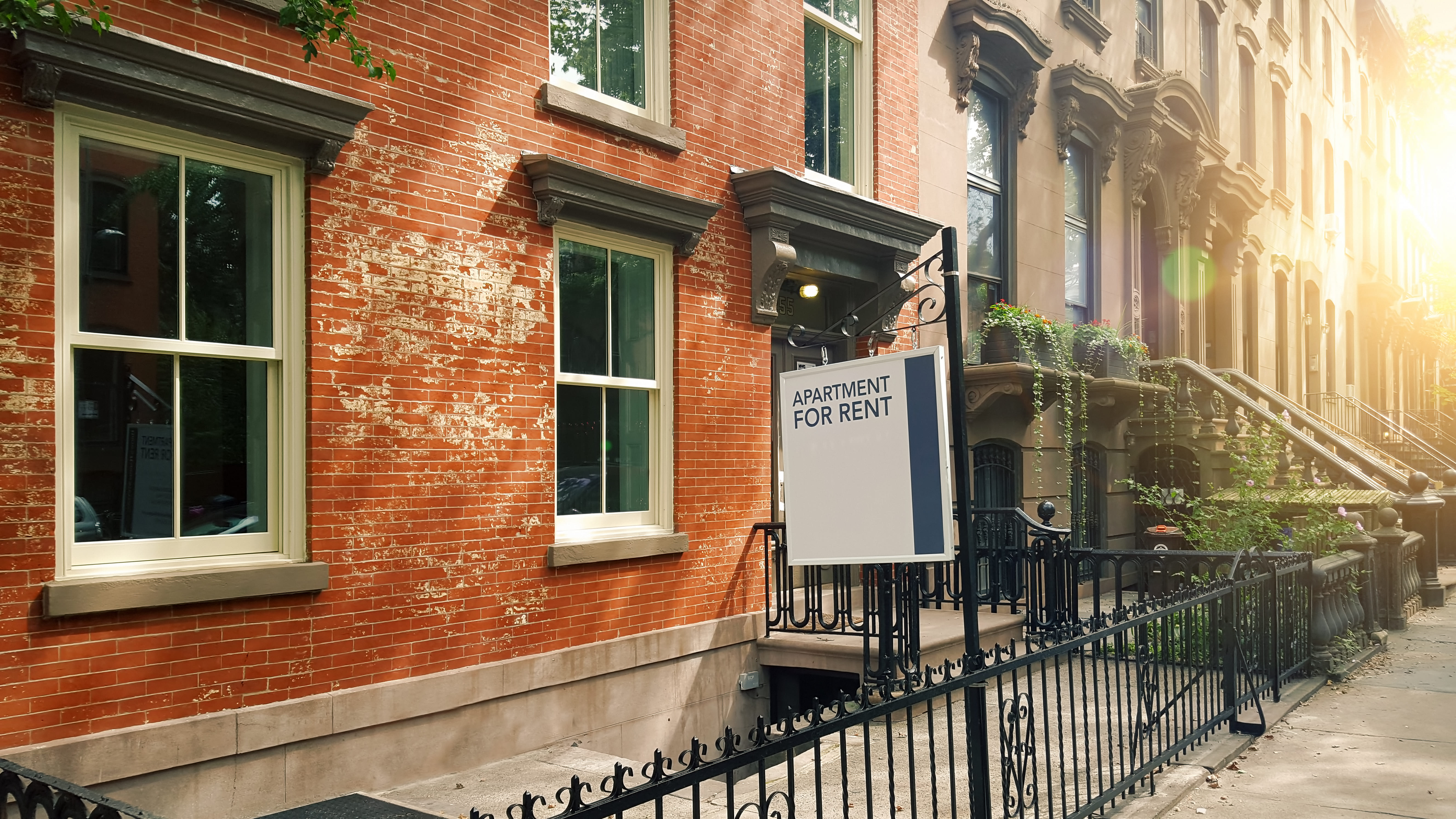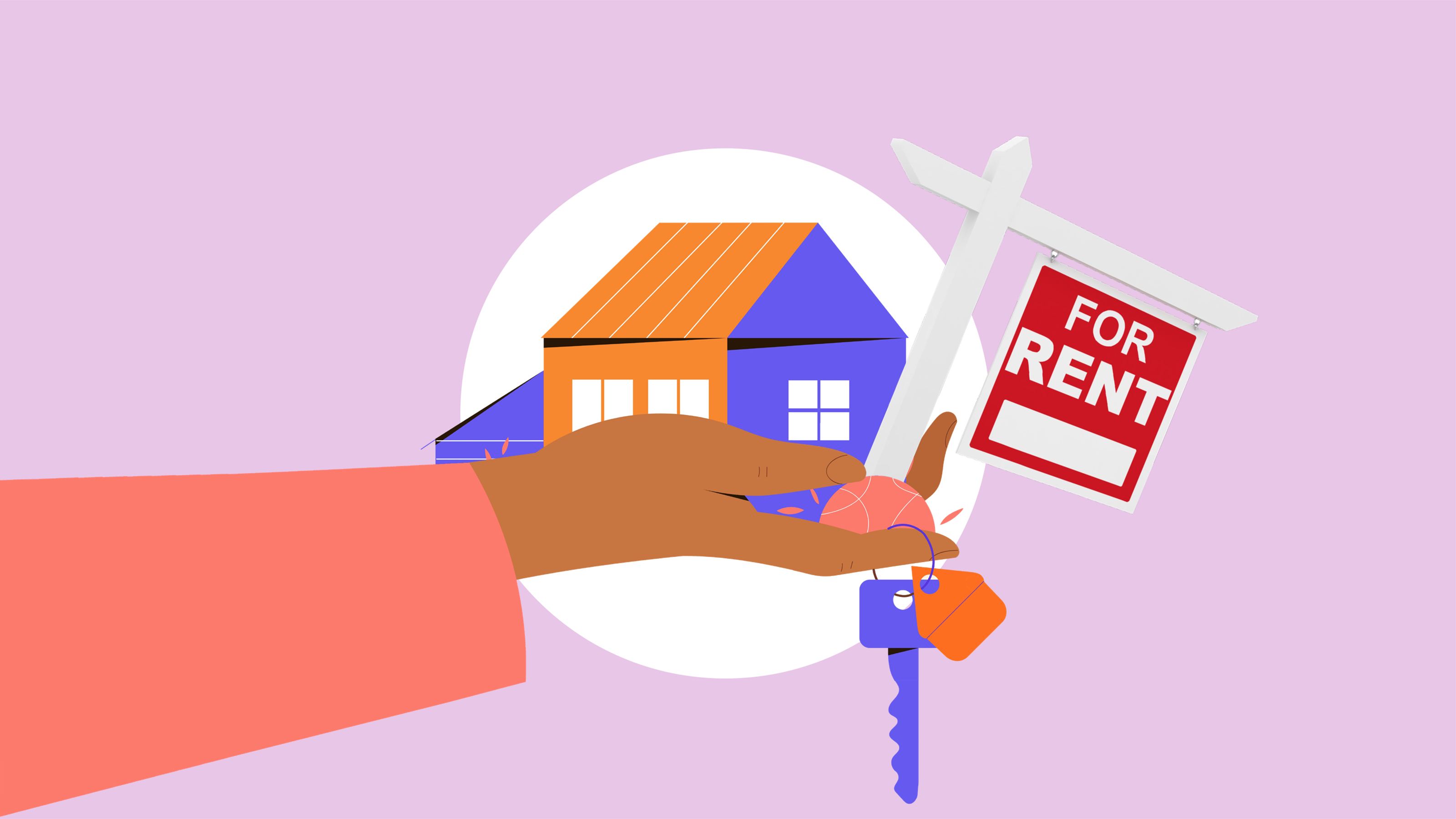
In a dizzying list of priorities, what should you keep near the top of your list when buying a home in a big city? An extra bedroom? Nope. A south-facing garden? Er, no... A kitchen to die for? Not at all. Discover what real experts look out for when they're leaving renting behind for house-hunting – and add them to your list so you don't put in an offer that you live to regret.
1. Good travel links (but not too good)?
First, consider the proximity of your potential house to an underground line. Good transport links are a plus but, as Caroline points out, ‘just because a property might not be near a tube station doesn’t mean you’re not above a tube line. Certain parts of a property can be more affected than others, so take care to spend time in each room, just in case.’
Another thing to consider if you are moving to a city that has an airport is whether the property is under a flight path – and whether the noise will drive you to distraction.
2. Does the garden get any sun?
Next, assess how built up the area is, and how that affects how much sunlight the house gets. ‘It’s great if your garden is facing west but if you are surrounded by high-rise apartments there’s a good chance your light will be blocked out a lot of the time.’ Caroline also advises against ruling out typically less popular east- and north-facing gardens: ‘If the garden is long with little overlooking it, the chances are you’ll still have some good sun.’
3. Have you poked about for knotweed?
A no less important consideration is the presence of Japanese Knotweed. ‘It can render a home virtually un-mortgageable so always check before putting in an offer if you can,’ Caroline points out. (We recommend consulting a knotweed expert, as the knotweed may be in a dormant state and therefore not visible. )
4. What can you hear?
For anyone moving to a large city from the country, the noise can really be a shock. And noise from public transport or immediate neighbours is not the only type you should think about. ‘Nearby schools or places of worship all come into play, and could change on a daily basis,’ says Caroline, 'So consider how the social life of an area could affect your preferences for quiet time.'
5. Be aware of local idiosyncrasies
Different cities have different rules and regulations. For example, parking rules and school catchment areas can be particularly tricky to navigate in London, as Caroline explains, ‘School catchment areas in London are quite unusual and should be investigated thoroughly before a purchase. There are some streets where one side is within a catchment area and the other side isn’t.’ Free or easy parking, too, is something that cannot be taken for granted in London, and should be looked into before you put down an offer on a home.
6. Are you being realistic?
What are you really looking for in a house? A lovely garden? A particular size? Or its location in a specific area? If the answer is 'all of the above', you may be in trouble. Caroline advises compromise: ‘If you have a fixed budget, really need to have a garden and you’re unwilling to change its location, it’s never going to work. Try to draw up a list of essentials and be willing to improvise and sacrifice the less important factors.'
7. Could a good buying agent help?
As you'd expect, Caroline makes a persuasive case for using the services of someone like her: ‘A good buying agent will be able to help most people, regardless of whether it’s their first purchase or their tenth. Initially, they will carry out a thorough selection process, sorting the wheat from the chaff. Their knowledge of what can make or break a deal, what factors will hinder resale further down the line and small issues that could hamper the lifestyle of the residents are all important attributes commonly overlooked by the everyday buyer.’
An agent will also know your area inside out and will be able to advise on lawyers, mortgage brokers, and surveyors. Negotiation is key to a successful purchase, but for many people, ‘buying a property is a decision made with the heart and not the head, which doesn’t make for the best negotiating conditions.’ A property agent will be able to think rationally, steer you away from a mistake, and may help you bag the home of your dreams – right in the heart of a city.
Join our newsletter
Get small space home decor ideas, celeb inspiration, DIY tips and more, straight to your inbox!
Anna is a professional writer with many years of experience. She has a passion for contemporary home decor and gardening. She covers a range of topics, from practical advice to interior and garden design.
-
 The 5 things about renting your first apartment you need to know — trust us, we have 33 years of renting experience
The 5 things about renting your first apartment you need to know — trust us, we have 33 years of renting experienceLearn the essentials about first-time renting an apartment, especially in big cities including budgeting, furnishing and even finding housemates
By Luisa Rossi Published
-
 11 questions to ask when renting an apartment
11 questions to ask when renting an apartmentWhat questions should you be asking when renting an apartment? See everything you need to know before you sign that dotted line with our expert guide.
By Jamie Ballard Last updated
-
 Why I choose to be a forever renter. Magnolia walls and all.
Why I choose to be a forever renter. Magnolia walls and all.Renting vs buying: Why I'm happy not being a homeowner.
By Anna K. Cottrell Published
-
 How to rent a house or apartment successfully: first rental or not
How to rent a house or apartment successfully: first rental or notWhether it's your first time as a tenant or not, knowing the ins and outs of how to rent a house or apartment is a must for a smooth ride.
By Andrea Dean Published
-
 The five cities where rents are going down in the US
The five cities where rents are going down in the USA new report shows the cities where rents are actually going down in price
By Millie Hurst Published
-
 Renters: now you can review your landlord, good or bad
Renters: now you can review your landlord, good or badMarks Out Of Tenancy lets you rate your landlord, estate agent, and property so future renters know what they're getting into – and to ensure standards are kept high
By Anna Cottrell Published
-
 Home ownership remains an aspiration for renters, but the majority don’t think they will ever own their own home
Home ownership remains an aspiration for renters, but the majority don’t think they will ever own their own homeRenters are increasingly disillusioned by a system that gives them no chance to get on the property ladder – but not with the idea of home ownership itself, latest stats show
By Anna Cottrell Published
-
 Cohabiting couples are the fastest growing family type, and couples wait just 19 months on average to move in
Cohabiting couples are the fastest growing family type, and couples wait just 19 months on average to move inThere are more unmarried couples living together than ever before, but the time it takes them to cohabit varies regionally
By Anna Cottrell Published